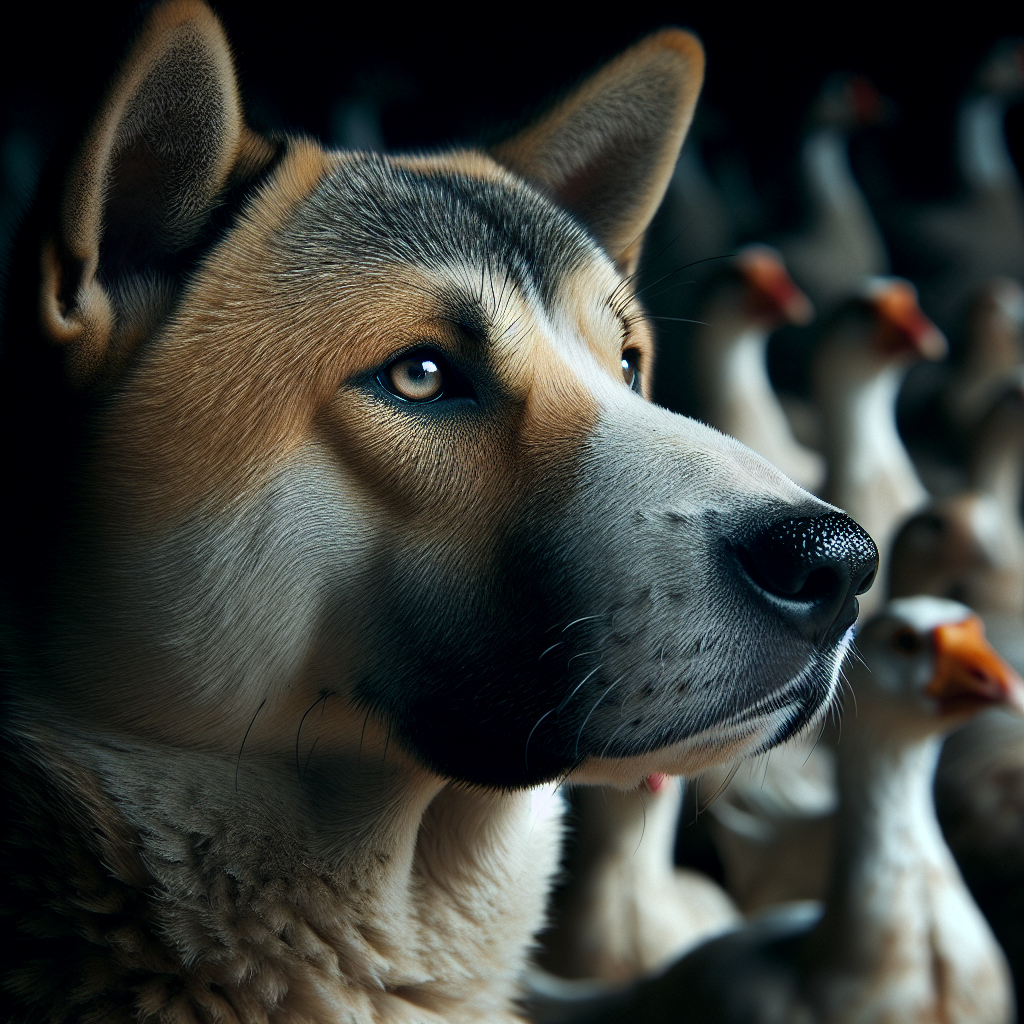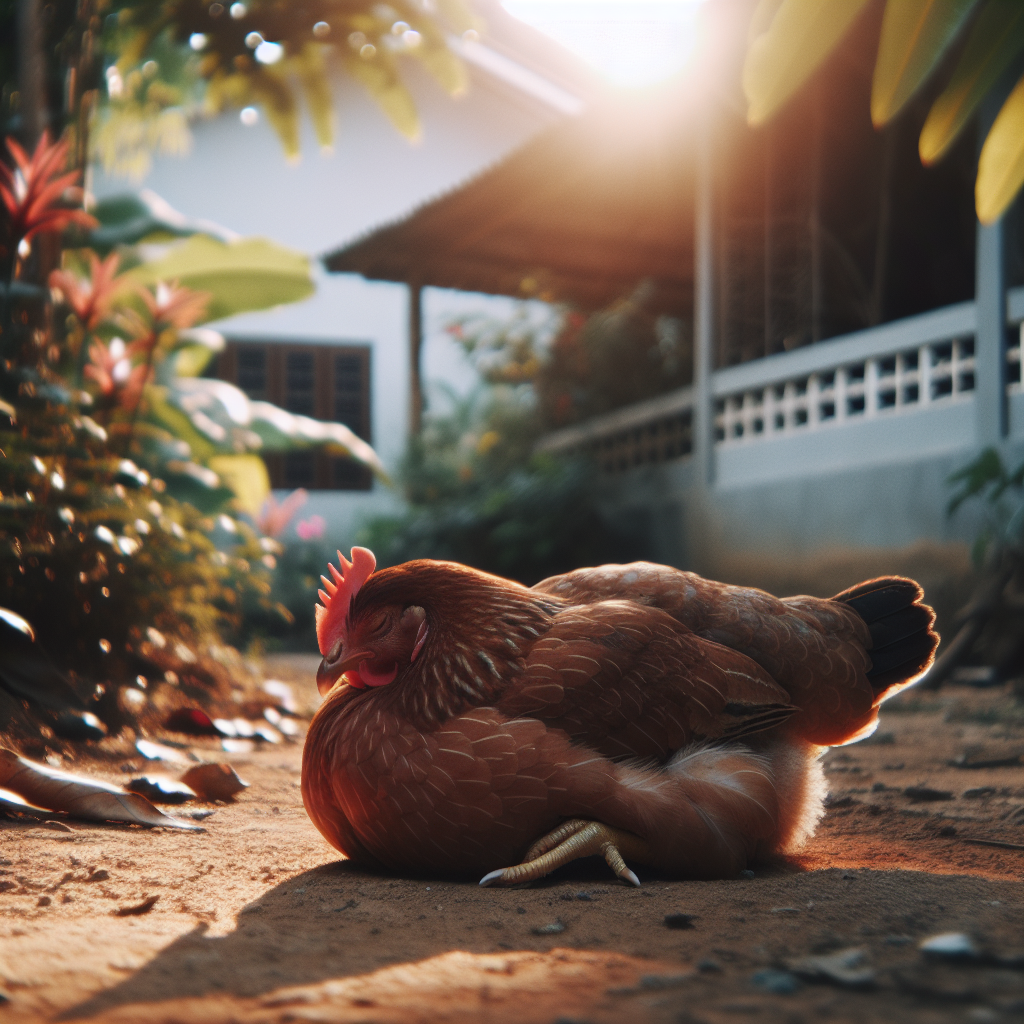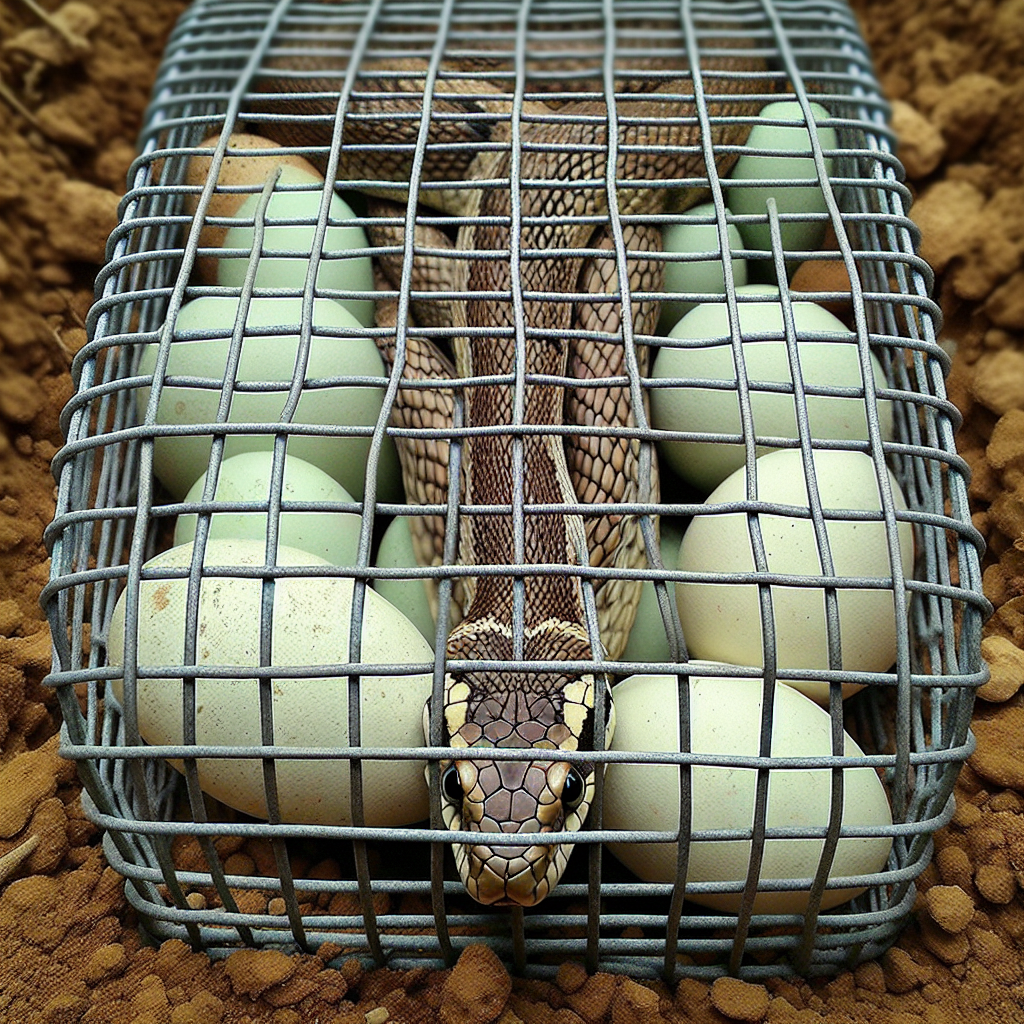If you’ve ever found yourself wondering whether guardian animals like dogs or geese could help protect your beloved chicken flock, you’re not alone. Many chicken owners have contemplated the effectiveness of these furry or feathered protectors. In this article, we’ll explore the potential benefits and considerations of using guardian animals to safeguard your feathered friends, helping you make an informed decision about the best way to protect your chicken flock.
Overview of Guardian Animals
What are Guardian Animals?
Guardian animals are specially trained animals that are used to protect poultry farms and livestock from potential predators. They serve as a natural deterrent to keep predators away, reducing the risk of harm to the chickens and other animals on the farm. Guardian animals exhibit instinctive behaviors that help them detect and scare off potential threats, making them an effective and eco-friendly solution for farm protection.
Benefits of Using Guardian Animals in Poultry Farms
Using guardian animals in poultry farms comes with several benefits. Firstly, they provide an added layer of security by actively patrolling and defending the chicken flock against predators. Their presence alone can deter predators from even approaching the farm. Secondly, they minimize the use of harmful chemicals or traps that may pose risks to both animals and the environment. Lastly, having guardian animals on the farm can contribute to a safer and more peaceful environment for the chickens and other livestock.
Types of Guardian Animals
There are various types of guardian animals that can be utilized in a poultry farm setting. The most common ones include guardian dogs and guardian geese. Each type has its own unique characteristics, training requirements, and compatibility with other livestock. Understanding the different types can help farmers choose the most suitable guardian animal for their specific needs and farm conditions.
Guardian Dogs
Characteristics of Guardian Dogs
Guardian dogs are well-regarded for their loyalty, protective instincts, and intelligence. They are known to form strong bonds with their chicken flock and exhibit a strong territorial nature. Guardian dogs are often large and imposing, which helps in intimidating potential predators. Their presence alone can be a powerful deterrent.
Training Guardian Dogs
Proper training is essential to ensure that guardian dogs develop the necessary skills and behaviors to effectively protect the chicken flock. Training typically involves socialization, obedience training, and specific predator detection and response training. It is important to work with professional trainers who specialize in guardian dogs to ensure their training is appropriate and effective.
Common Breeds of Guardian Dogs
Several breeds of dogs are commonly used as guardian animals on poultry farms. Great Pyrenees, Anatolian Shepherds, and Maremmas are among the most popular choices. These breeds have been bred for centuries to guard livestock and possess the desired traits for protecting chickens. However, it is important to research and select a breed that is adaptable to local climate and farm conditions.
Guardian Geese
Characteristics of Guardian Geese
Geese are natural guardians and have been used to protect flocks for centuries. They are highly territorial and have excellent hearing and vision, making them an alert and effective deterrent against predators. Geese are known for their loud honking, which not only alerts the farmer but also scares off potential predators.
Training Guardian Geese
Training guardian geese involves familiarizing them with the poultry farm environment and gradually introducing them to the chicken flock. Geese naturally exhibit protective behaviors, so training primarily focuses on building a strong bond between the geese and the chickens. Proper socialization and positive reinforcement techniques are crucial for successful training.
Comparison Between Guardian Dogs and Geese
Effectiveness in Protecting Chicken Flock
Both guardian dogs and geese can be highly effective in protecting chicken flocks. Guardian dogs have the advantage of size and strength, which can physically deter predators. Geese, on the other hand, have keen senses and are highly vocal, causing potential threats to flee. The effectiveness of a guardian animal may vary depending on the specific farm environment and the nature of predator threats.
Cost and Maintenance
In terms of cost, both guardian dogs and geese require investment in terms of initial purchase or adoption, as well as ongoing care and maintenance. Guardian dogs may require regular veterinary care, grooming, and high-quality food, while geese primarily need access to water, proper shelter, and a balanced diet. It is important for farmers to consider the long-term costs associated with each option.
Compatibility with Other Livestock
Guardian dogs are known for their adaptability and ability to protect various types of livestock. They can be trained to coexist peacefully with chickens, goats, sheep, or even larger animals like cows. Geese, on the other hand, are best suited for poultry farms where chickens are the primary livestock. Their territorial nature may not be compatible with other types of animals, which could lead to unnecessary conflicts.
Considerations Before Adopting Guardian Animals
Size of the Chicken Flock
The size of your chicken flock should be taken into consideration before deciding to adopt guardian animals. Larger flocks may require multiple guardian animals for effective protection, while smaller flocks may only need one. Understanding the size of your flock will help determine the number and type of guardian animals needed.
Availability of Adequate Space
Guardian animals require enough space to roam, exercise, and patrol the farm. Ensure that your poultry farm has adequate space to accommodate the size and needs of the guardian animals. Limited space may hinder their ability to effectively protect the chicken flock and could lead to behavioral issues.
Predator Threats in the Area
Assessing the predator threats in your specific area is crucial when considering guardian animals. Different regions may have different types of predators, such as foxes, raccoons, or coyotes. Understanding the local predator population and their hunting behaviors will help you determine the most suitable guardian animal for your poultry farm.
Handling Concerns and Safety Precautions
Keep in mind that guardian animals, especially dogs, may have handling concerns and safety precautions. They should be properly socialized and trained to minimize potential risks to both farm workers and visitors. Implementing safety measures, such as secure enclosures and proper handling procedures, will help ensure a safe environment for all.
Introducing Guardian Animals to the Chicken Flock
Gradual Introduction Process
Introducing guardian animals to the chicken flock should be a gradual process to avoid unnecessary stress or aggression. Start by allowing the chickens and guardian animals to observe each other from a distance, gradually reducing the separation over a period of time. This gradual introduction allows them to become familiar with each other’s presence without overwhelming stress.
Integrating Guardian Animals with Chickens
Once the initial introduction phase is complete, the next step is to gradually integrate the guardian animals with the chickens. This process involves supervised interactions and ensuring that the guardian animals do not exhibit any aggressive behavior towards the chickens. Monitoring their interactions closely will help identify any potential issues early on.
Monitoring and Supervision
Ongoing monitoring and supervision are essential throughout the integration process. Watch for any signs of aggression or stress from either the guardian animals or the chickens. Regularly assess the interaction and adjust the integration process as necessary to ensure the safety and well-being of all animals involved.
Daily Care and Maintenance of Guardian Animals
Feeding and Nutrition
Providing guardian animals with a balanced diet is crucial for their overall health and well-being. Consult with a veterinarian to determine the most appropriate feeding regimen for your specific guardian animal. High-quality food formulated for their specific needs should be provided to ensure they receive the necessary nutrients.
Healthcare and Regular Check-ups
Just like any other animal, guardian animals require regular healthcare and veterinary check-ups. Vaccinations, deworming, and flea and tick prevention should be administered as recommended by your veterinarian. Regular check-ups allow for early detection of any potential health issues and ensure that your guardian animal remains healthy and fit.
Physical and Mental Stimulation
Guardian animals, especially dogs, require regular exercise and mental stimulation to prevent boredom and destructive behavior. Providing them with ample opportunities for physical activity, such as regular walks or access to a securely fenced area, is important. Mental stimulation can be achieved through interactive play, training sessions, or puzzle toys.
Supplementing Guardian Animals with Other Protective Measures
Proper Fencing and Enclosures
While guardian animals play a crucial role in protecting the chicken flock, proper fencing and enclosures are equally important. Strong and secure fencing helps keep out predators and prevents the chickens from wandering off. Additionally, ensuring that the enclosure provides adequate shelter and protection from the elements is vital for the well-being of all animals.
Cameras and Alarms
Incorporating technology into your farm protection measures can provide an extra layer of security. Installing security cameras and alarms can help detect and deter potential threats, allowing for prompt response and intervention. These systems can be particularly useful during nighttime when guardian animals may not be as effective.
Nighttime Safety Precautions
Nighttime poses higher risks for predators to attack the chicken flock. Implementing specific safety precautions such as locking chickens in secure coops or using motion-activated lighting can help minimize the vulnerability of the flock. Combining these precautions with the presence of guardian animals can significantly enhance the overall protection of your poultry farm.
Alternatives to Guardian Animals
Using Electronic Predator Deterrents
Electronic predator deterrents, such as motion-activated lights or sound devices, can be effective in scaring off potential predators. These devices create a sense of danger or disturbance that predators associate with an undesirable hunting ground. Used in conjunction with guardian animals, electronic deterrents can provide a comprehensive defense against predators.
Implementing Natural Barriers
Some natural barriers can act as deterrents for predators, reducing the need for guardian animals. For instance, maintaining a well-trimmed and cleared perimeter around the poultry farm can make it harder for predators to access the chicken flock. However, it is important to note that natural barriers alone may not provide the same level of protection as guardian animals.
Active Human Surveillance
Hiring trained security personnel or organizing a neighborhood watch can be an alternative to using guardian animals. Human surveillance allows for real-time monitoring and immediate action against potential threats. However, this approach may require more resources and may not be as cost-effective as utilizing guardian animals in the long run.
Success Stories and Experiences of Farmers
Real-Life Examples of Guardian Animals’ Effectiveness
Farmers have shared numerous success stories and experiences regarding the effectiveness of guardian animals in protecting their chicken flocks. Many have reported a significant decrease in predator attacks and losses after introducing guardian dogs or geese. These animals have proven their ability to deter predators and create a safer environment for the chickens and other livestock.
Farmers’ Feedback and Recommendations
Farmers who have adopted guardian animals often provide feedback and recommendations to fellow farmers. Their experiences can offer valuable insights into the challenges, benefits, and best practices of using guardian animals. It is advisable to connect with experienced farmers and participate in relevant forums or groups to gain practical knowledge and advice.
In conclusion, using guardian animals like dogs or geese can be an effective and natural way to protect your chicken flock on a poultry farm. Understanding the characteristics, training requirements, and compatibility of various guardian animals is crucial for making an informed decision. Proper care, regular training, and supplementing with other protective measures can ensure the safety and well-being of both the guardian animals and the chickens. By implementing a comprehensive farm protection strategy, you can create a secure and peaceful environment for your poultry farm.




